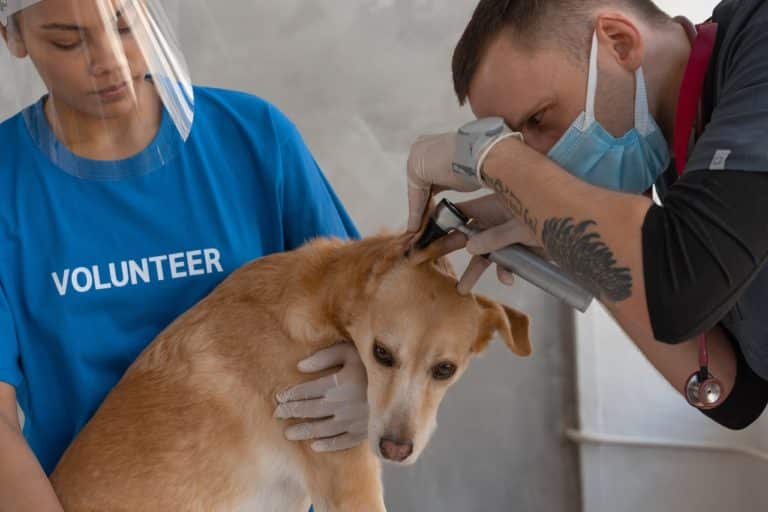Ear infections in dogs are a common occurrence. In fact, one pet insurance company listed ear infections as one of their top 5 medical conditions claimed for in 2018. Ear infections can affect the external, middle or inner ear canal. While ear infections can usually be resolved with veterinary attention and treatment, sometimes they can cause deafness or even facial paralysis. Therefore it is best for your dog to avoid getting any ear infections in the first place. If you don’t want your pet becoming another victim of an ear infection, the below tips may help.
1. Keep the ears clean and dry
Too much moisture for too long can cause ear infections. Bacteria and yeast love to live in moist environments. That’s why after a doggy swim or bath, you should dry your pet’s ears. It’s also a good idea to regularly check your dog’s ears for cleanliness. If they get dirty, then you can use a dog ear cleaning solution to clean them. This can be used in conjunction with gauze for the ear canal and cotton swabs for around the outside of the ear during the cleaning process.
2. Keep your dog flea-free and mite-free
Flea bites can cause itching in your dog’s ears – and mites produce a waste which may also be an irritant for your dog’s skin. If fleas or mites happen to settle around your dog’s ears, a local reaction, coupled with your dog’s own urge to scratch itself, may lead to an ear infection. In these instances it’s prudent to treat the fleas or mites using tablets, topical treatments or special shampoos.
3. Avoid allergens
Pets can be allergic to many things too, just like humans. Certain foods may cause a reaction in your dog’s body, and pollen and grass may irritate your dog’s ears. As such it is important to identify what the allergens are for your dog and avoid them wherever possible. Allergies can lead to inflammation and itching for your pet. The local area may even become hot, or warmer than usual. There are some antihistamines which may help your dog depending on the allergy, that your vet can recommend you.
4. Avoid physical injury or trauma
Any physical force can cause a cut or break in the skin leaving the tissue underneath susceptible to infection. For example, infections of the inner and middle ear canal often result from the spread of infection from the external ear according to the American Kennel Club (AKC). Physical injury or trauma can be a result of your dog scratching itself to relieve an itch, from playing too rough or from grazing its ears against furniture. If you notice your dog scratching its ears too frequently, you may want to consider using an Elizabethan collar, also known as a pet cone or protective dog collar. You should also talk to a vet to find out why this behavior is happening.




